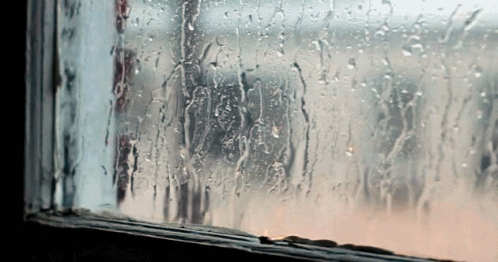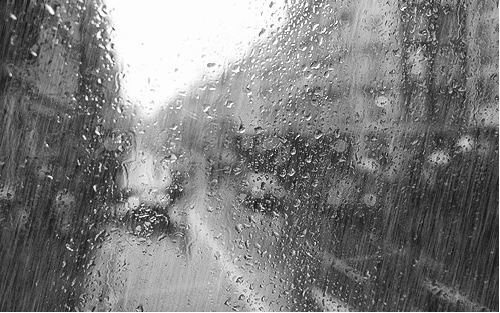Literary Journal Poetry, fiction, creative nonfiction Binghamton University SITE BLOGSPOT Twitter
Don't wanna be here? Send us removal request.
Text
Congratulations to Colleen Carias, this year's winner of the Milton Kessler Memorial Prize in Poetry, for her poem, "is a dangerous thing" and to Jeffrey Schneider, winner of the Harpur Palate Award in Creative Nonfiction, for his piece, "Tablelands." Thank you to everyone who submitted to both contests; we are very blessed here at Harpur Palate to have so much talent come in that picking a winner is always a difficult decision. We look forward to reading your submissions for next year's contests!
5 notes
·
View notes
Link
Congratulations to Sam Keck Scott, winner of the 2015 John Gardner Memorial Prize in Fiction! Sam's winning story, "Hourglass," can be found in Issue 15.1, Summer/Fall 2015, and on our blog at this link.
3 notes
·
View notes
Link
Congratulations to past contributor Kathryn Nuernberger, who has received the 2015 James Laughlin Award from the Academy of American Poets for her forthcoming "The End of Pink," to be published by BOA Editions in 2016. Click the link to find out more about Kathryn, her book and the James Laughlin Award.
0 notes
Link
Past contributor Tina Tocco (Issue 12.2, "Family Planning") has a review of Linda Simone's chapbook "Archeology" up at First Literary Review-East.
0 notes
Text
Past contributor Ruth Madievsky’s forthcoming poetry collection will be published by Tavern Books in January:
Tavern Books has selected Ruth Madievsky's manuscript Emergency Brake for publication through the second annual Wrolstad Contemporary Poetry Series. Madievsky's debut full-length collection is a book of fervent wondering that explores the body in ecstasy, in dailiness, and in trauma. Throughout it, shadow and glaring light vie for ownership of the self. Emergency Brake is a deposition of anxiety, a rap sheet of heartbreak and bliss.
Ruth Madievsky was born in Moldova and currently lives and writes in Los Angeles. Her work has appeared or is forthcoming in Blackbird, Gulf Coast, The Journal, Rattle, West Branch, ZYZZYVA, and elsewhere. In 2015, she was the winner of CutBank Literary Magazine’s Patricia Goedicke Prize for Poetry, judged by Matt Rasmussen, and Beyond Baroque’s 5th Annual Poetry Contest, judged by David St. John. Her first chapbook of poems has been a finalist in several contests at presses such as Button Poetry and Coal Hill Review. Madievsky is a chapbook reader for Gold Line Press and writes for Los Angeles Magazine. She is also a doctoral student at The University of Southern California School of Pharmacy and a research assistant at an HIV clinic specializing in maternal care in Downtown Los Angeles. Tavern Books will publish Emergency Brake in paperback and hardcover editions in January 2016.
1 note
·
View note
Text
Past contributor Nicole Rollender's forthcoming chapbook will be published on September 5:
Through the half-lit poems in "Bone of My Bone" runs a troubling line of questioning – what’s beyond this life? – as the narrator contends with death on a very visceral level: “The hip is something/ no longer examined in the light.” In these poems’ rooms, which are like the ruins of a cathedral open to a night sky, the haunted narrator explores the real ways that we take which is ours, both in this life and in the next. There’s a chance to seize at “what is also the divine: There is no saint/without a past.”
2 notes
·
View notes
Link
Check out Dante Di Stefano's review of Jim Reese's poetry collection, Really Happy, now up on our website!
0 notes
Photo

We've been busy here at HP! Check out our awesome new issue, which mailed yesterday. We're open for submissions once more for another round of fiction, poetry, and creative nonfiction! Check out harpurpalate.blogspot.com for more info...
5 notes
·
View notes
Link
While it's a while til the reading period for Harpur Palate reopens, take this break to read some advice on what literary journals are searching for.
1 note
·
View note
Link
"There were nights my mother came home, and there were nights when she did not." ~Emily Saso, Apocrypha
Thus begins "Apocrypha," the winner of our Undergraduate Flash Fiction Contest. Follow the link to read the story. Emily will also read at our launch party this Friday.
Thank you to all who participated.
2 notes
·
View notes
Text
Choosing a Publishing House for the Unagented
Currently I do not have a literary agent, although I will be seeking one in the future. I am traditionally published with a small press that does not require one. While it doesn’t offer an advance, I do receive 50% net profits. Contrary to the popular belief that net profits raise a red flag, you do want net profits with a small press, and you can find out why here. I STRONGLY encourage you to read that article.
50% net profits basically means that, for example, if I were to sell 1,000 books every month (online with e-book), I could make about that much money (publisher and I split what is left over), which is more than someone with a much larger press would make on gross profits (online). Most small presses typically sell online only, although a few can get a small percentage of their books in stores—but this is rare.
Continuing on.
A few pointers:
It is not any easier to get accepted by a small press. It’s just as difficult as other presses and should be. It shows the publisher cares about the quality of a book.
Don’t expect explosive sales with a small press but do expect to sell. Lower your expectations, but you should not have to severely lower them. A good small press will get sales for your book and will help you grow your career. This is because small presses simply don’t have the budget of the larger presses, so exposure is more minimal. But you can still do well with one. About 1,200 sales of your book within the first year is considered good—for a small press.
Small presses do exist for a reason. You can use these as a last resort to medium presses or offshoots of larger presses that don’t require agents, but small presses exist to take, I suppose, edgier content that you don’t commonly find among mainstream publishers—hardcore erotica and new adult, for example. I chose a small press for When Stars Die because I knew the darkness would have to be watered down to fit more mainstream tastes—not to mention my book would get looked at as NA, even thought it is not. My book is also paranormal, and it is a genre larger publishers are a little resistant to accept now. There are books edgier than mine in the YA market, but they are few and are left at the mercy of an editor to decide whether or not it’s dark enough or too dark. It’s a rare editor willing to allow the darkness to stay, but I notice books like these don’t do too well with mainstream publishing like they would with a small press. Fault Line is one book I can think of (a book I loved) that is with a big press, but if you look at its rankings, they���re hardly anything to cheer about. Rankings aren’t always accurate, but they can still give you a glimpse. Rankings like that are slightly acceptable with a small press but not so with a larger press.
I find an agent unnecessary for small presses. This is a personal opinion of mine. A VERY personal opinion. If you have a literary agent, your agent should use small presses as a last resort, especially if you are against the idea of self-publishing because you don’t think you’ll do so well alone. The reason I say this is because oftentimes small presses don’t provide advances, so you will be splitting your profits among your publisher and agent, so there is less money for you than if you had gone in without an agent. And sometimes they do provide advances, but they are small, so your advance will be even smaller if you have to split it with your agent. Spencer Hill Press started out with 200 dollar advances. I don’t know if they’ve increased the pay, but I know one literary agent who immediately went to them right off the bat for her clients. Granted, she was new at the time; however, she is no longer an agent. If the press is reputable and the contracts author friendly, you have no reason to fear signing on without an agent, unless that small press is not taking unsolicited manuscripts at the time. In this case, you should move on to another press that is taking unsolicited manuscripts. But, again, if you have an agent, that agent should be using small presses as a LAST RESORT. That agent shouldn’t be trying small presses immediately. It is my opinion that if you’re seeking an agent, it is because you want to be published by a large press that offers some great terms and a sizable advance so that way you’re not being shortchanged of money that is rightfully yours. Net profits for a small press exist to make up for an advance. (This is assuming that your book does well to make up for that advance, and it should, probably within its first year, because even with a large press, you won’t receive your entire advance upfront.) So why would you want to share those profits with an agent, unless you absolutely have to as a last resort?
So when choosing a publishing house that is outside of the Big 5 or a house connected with one of the Big 5, what are you supposed to do? How do you know which house is going to treat your book well, and how do you know which house is going to destroy your book?
Read More
760 notes
·
View notes
Photo
Now that it's too warm for snow, we can have rain days.






Nothing can compare to books and writing while it’s raining.
126K notes
·
View notes
Photo

We're having a launch party and you should join us!
2 notes
·
View notes
Photo
That's a good question.


(x)
27K notes
·
View notes
Photo

Trevor Johnston
1K notes
·
View notes
Photo




Here’s the link for more information about the PS244 fundraising campaign.
Here’s the link to the GIVE IT ALL TO ME Library Collection at OutofPrintClothing.com.
14K notes
·
View notes
Photo

Happy Birthday, Mary Wollstonecraft, born 27 April 1759, died 10 September 1797
Five Quotes
My own sex, I hope, will excuse me, if I treat them like rational creatures, instead of flattering their fascinating graces, and viewing them as if they were in a state of perpetual childhood, unable to stand alone.
Simplicity and sincerity generally go hand in hand, as both proceed from a love of truth.
It appears to me impossible that I should cease to exist, or that this active, restless spirit, equally alive to joy and sorrow, should only be organised dust - ready to fly abroad the moment the spring snaps, or the spark goes out, which kept it together. Surely something resides in this heart that is not perishable - and life is more than a dream.
The beginning is always today.
It is vain to expect virtue from women till they are in some degree independent of men.
Wollstonecraft was an eighteenth-century English writer, philosopher, and advocate of women’s rights. She wrote novels, treatises, a travel narrative, a history of the French Revolution, a conduct book, and a children’s book. She is best known for A Vindication of the Rights of Woman. Her daughter, Mary Shelley, wrote Frankenstein.
Source for Image
by Amanda Patterson for Writers Write
272 notes
·
View notes